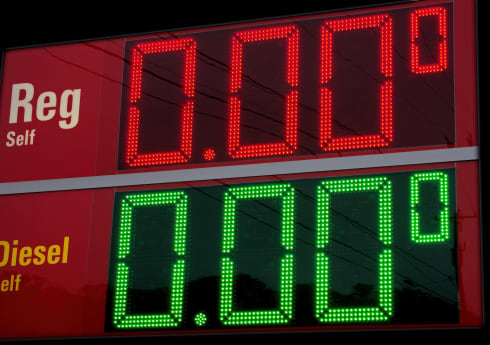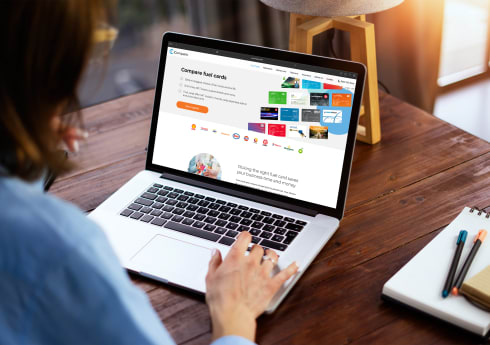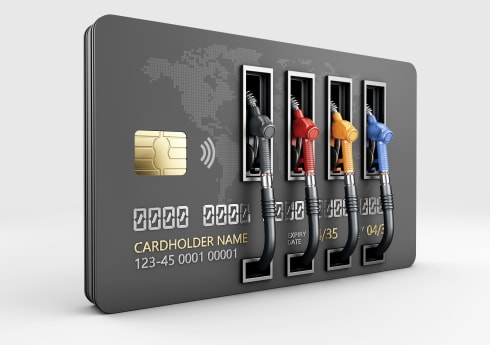Get a charity fuel card to make your fuel expenses cheap and easy

Credit: Flickr
Keeping on top of costs is essential for charities. We all know how donors dislike giving money towards charity running costs, so any way to help keep your expenses as low as possible is worth looking into.
We discuss ways you can manage these expenses:
- Fuel cards
- Insurance cover
- Telecoms and digital offices
We explain how each of these things keeps costs under control for your charity and provide examples of how you can incorporate them into your organisation.
How do fuel cards benefit charities?
Here’s how fuel cards can help your charity save money on its diesel and petrol costs and keep its money secure when your staff purchase fuel.
You can save money on your fuel costs
Fuel cards come with a range of discount options that can help your charity to save money when staff make journeys on expenses.
Fuel cards work like credit cards, but they are only for buying petrol or diesel plus a few other vehicle-related products such as engine oil. Your staff fill up and pay with their fuel card, then the charity pays a single consolidated invoice afterwards.
There is a huge range of fuel cards available, including cards from the big energy companies and some allied networks of multiple brands. Numerous price discounts are available. Some fuel cards offer a weekly fixed price which can be lower than the pump price, while some offer a specific percentage off the pump price. Others may offer special terms, for example the choice of nominating one local filling station that gives you a specific discount.
Not only this, you can manage your fuel card account in an online portal. Fuel purchases are listed by employee, location or amount, giving the exact time and date of the purchase. This makes it easy for you to keep track of who is buying and using most fuel, or if anyone is using more fuel than you would expect. Analysing your fuel spend is the first step to taking real control of costs.
All of these things combined help your charity to keep its fuel costs low, so you and your staff can continue to travel to the destinations necessary to complete your work without overspending on petrol or diesel.
You can keep your charity’s cash secure
Fuel cards are a secure, PIN-protected, electronic payment method. This means your charity’s money is safe even if an employee’s card is misplaced or stolen.
Some cards also come with an extra layer of security, sending you alerts if your fuel card is being used more frequently than normal. This allows you to take quick and decisive action to stop any fraudulent activity.
The result of all this is that every time you or one of your staff need to take a car journey to support your charity you can be sure that your charity’s cash is safe.
Best fuel cards for charities
There are lots of fuel cards to choose from and it can be tricky knowing which is the right one for your charity. We’ve highlighted a few of the top fuel cards for charities.
| Fuel Card | Key Benefit |
| Texaco Fastfuel Fuel Card | Fixed weekly wholesale prices for your diesel and petrol |
| BP Plus Fuel Card | Simple online account management with analytical tools |
Having fuel cards can save your business money, do your driver fuel expenses claims automatically and make it a 30-second job to reclaim your fuel VAT. As a free comparison site, iCompario can find you offers on cards from all the big oil companies or multi-brand cards, and deals with no minimum purchase or tie-in contracts.
How does insurance cover help charities save money?
Insurance for charities could make the difference between coping well, surviving or closing down in the case of a major setback. This could be the cancellation of a major event for which you have already invested significant staff time, deposits and materials; it could be legal action against you by an employee or volunteer; or some form of liability in relation to a member of the public.
Charity trustees have a duty to protect their charity’s assets and resources. All charities face risks which may lead to suffering loss, damage or liability.
While taking out insurance policies will actually increase your costs, the key point is that this cover eliminates the risk of the charity closing down in the event it suffers a liability it cannot pay for.
Although insurance is not always the only way to manage risk when you operate in the third sector, there are certain types of charity activity where insurance is a legal obligation.
Employers liability insurance
If you employ staff, you are required by law to buy employers’ liability insurance. This includes your volunteers as well as contracted employees, and they must be given the same level of cover.
Motor vehicle Insurance
Charities that own or operate motor vehicles are also required by law to buy motor insurance.
There are other types of insurance that many charities need. These could include buildings and contents cover, and of course event insurance if you regularly organise charitable events. Investing significantly in events that could possibly be cancelled for circumstances beyond your control can seriously dent your funds and the relatively modest cost of insurance to cover you for this is a very sensible investment for most charities.
You’re protected if something happens to a member of the public
Public liability insurance is another highly important type of business insurance that a charity can invest in. It covers you in the event that something happens to a member of the public for which you are liable, providing cover for resulting legal costs.
Useful insurance cover for charities
| Insurance Type | Key Benefit |
| Public liability | Cover if a member of the public is harmed by your charity |
| Employer’s liability | Cover if staff/volunteers get sick or injured while with your charity |
| Trustee liability | Cover if a trustee is held liable for the actions of your charity |
iCompario is the free online marketplace for business products and services, where managers and owners can research and rapidly compare fuel cards, vehicle tracking systems, insurance, telecoms and other essentials. We follow up each online query by telephone, to make sure every site visitor finds their ideal, future-proof product at the best price possible.
iCompario is an IAR or Introducer Appointed Representative of business insurance broker Joseph W. Burley and Partners (UK) Ltd. which is registered with the Financial Conduct Authority.
How do digital offices benefit charities?
Offices are one of the greatest expenses for any charity. You have to pay for their rent, utilities and upkeep, all of which can be a huge financial burden for charities.
Moving to a digital office removes many of these costs and saves your charity a significant amount of money, along with offering some other key benefits. A perusal through the main recruitment websites for charity staff is an easy way to spot that this trend to remote working is taking off in the third sector as dramatically as in many other sectors.
Removes or reduces your office overheads
Creating the infrastructure to work remotely takes time and uses company resources. However, once it’s in place your business can make significant long-term savings, with Hitachi Capital reporting that remote working can save small companies £840 per month whilst yourmoney.com has calculated that your employees could save over £4,000 per year on commuting and other costs.
Physical offices no longer need to be paid for, either through rental agreements or ownership, you no longer have buildings insurance to pay or utilities, such as heating and electricity. If you shift to digital offices you can arrange necessary meetings in cafes or other public spaces that are (almost) free to use.
Of course, there is a cost to creating this infrastructure. You need to review the available tools, pick the best ones for your charity and then add up the total cost, to compare this against the current overheads of operating your office.
Allows you to broaden your employment opportunities
One of the biggest drawbacks of physical offices is that it limits your ability to hire people. If you ask people to come into an office on a regular basis then they’ll often only be willing to do so if it’s within an acceptable distance from their home. Digital offices erase this problem.
There are core three elements to making remote office working a cost-cutter:
- Good broadband
Your employees are likely to have their own broadband connection at home and be willing to use this for work without being reimbursed. The petrol money and unpaid time they are no longer wasting on their daily commute is likely to be more than enough compensation. - Hosted telephony, also known as cloud telephony or Voice-over-Internet-Protocol (VoIP)
This is a phone network in the cloud. This gives you a ‘desktop client’, which means the functionality of a phone within your laptop, and a mobile app, which means desktop functionality in your mobile phone. From a donor and client point of view, this means they reach your people on the same phone number no matter where they are. Different providers have different strong points, and iCompario can help you find the best provider for your charity. - Business mobile phones
Business mobile phone contracts provide a reliable mobile phone service for all your employees with a single company billing structure. In other words, if one employee has not used all their allowance in one month, you can switch this to a colleague or save it up for the following month. There are numerous billing structures and it can take ages to work out the best one for your charity, but iCompario can help you pick your best option free of charge, and save you hours in research.
As a free comparison site, iCompario can help you find the right business mobiles and SIM deals, internet phones, broadband and any other communications solution you need, for the right price.
Sources and further reading
Your legal insurance obligations and charity insurance advice from gov.uk



